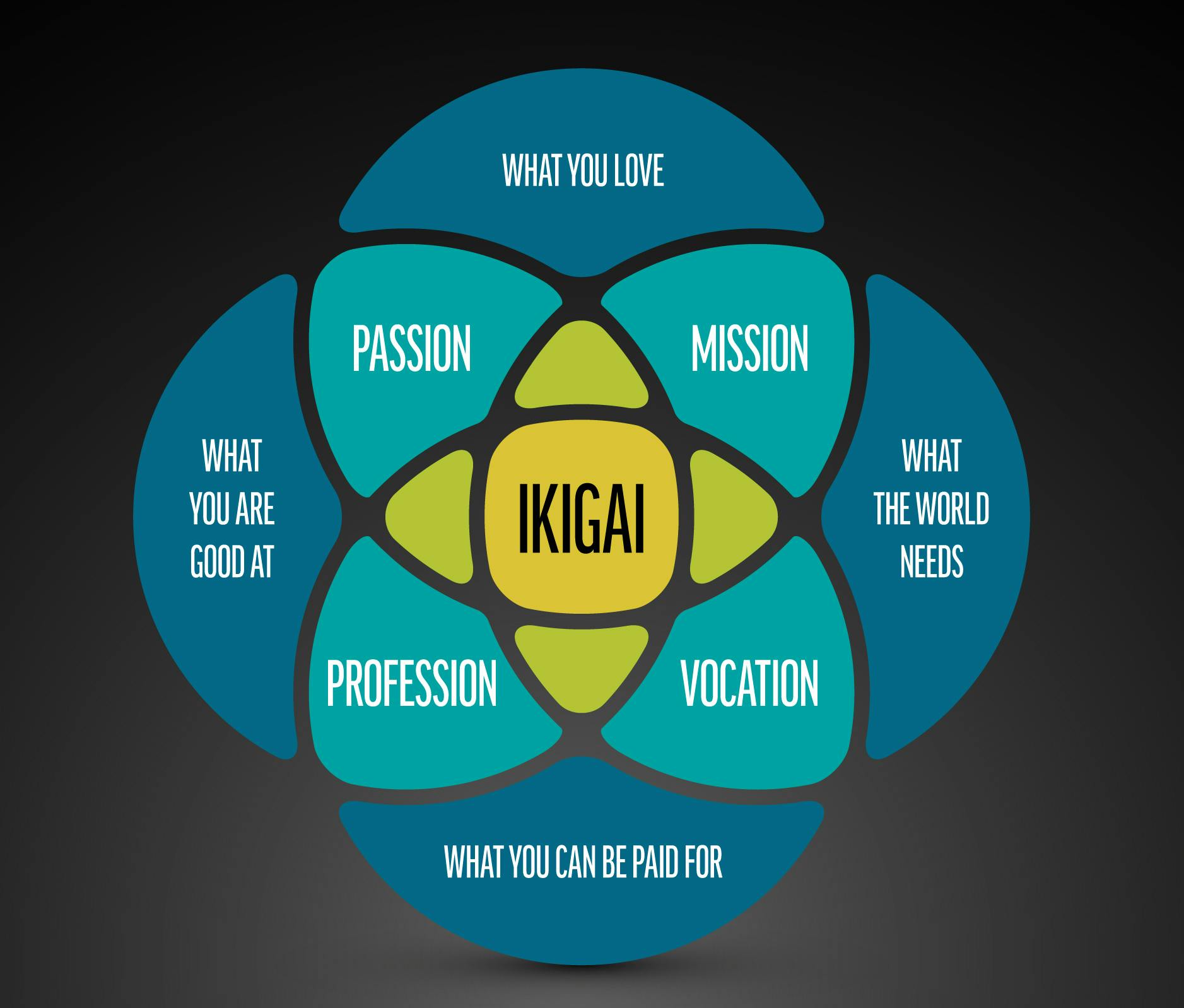What does the concept of ‘Ikigai’ mean?
There is a stereotype attached to the Japanese that they are overly diligent and dedicated. Some Japanese do claim that they work harder than others. But in reality, that is not the case. What appears to be “working harder” is working in a state of flow resulting in maximizing productivity. This describes a mental state in which a person is fully immersed in an activity, losing all track of time. This deep immersion is closely tied to the Japanese concept of Ikigai, which is not merely diligence but a philosophical expression that encompasses a life of purpose and fulfillment.
So how do the Japanese achieve this sense of immense satisfaction in their work? The answer is Ikigai. Ikigai is the intersection of what you love, what the world needs, what you can be paid for, and what you’re good at. It’s about finding meaning in life and living in a way that brings joy and satisfaction. The concepts of Ikigai and flow are deeply interconnected, both emphasizing a profound sense of purpose and engagement in one’s activities. Ikigai represents the alignment of passion, vocation, mission, and profession, leading to a life filled with meaning and fulfillment. When a person identifies their Ikigai, they are more likely to experience flow in their daily activities.
Everyone has an Ikigai, which is a combination of one’s passion, talent, and potential to serve others. The secret lies in determining what it is and following it as a life path.
How can Ikigai help a student choose a career?
While all of this sounds philosophical, Ikigai can be used to generate autonomy and self-awareness, thereby creating conditions suitable for determining the meaning of life and future jobs. Career coaching begins with the premise of helping students become self-aware. Innumerable career assessments can create confusion in getting the correct answer. Hence, the framework provided by Ikigai is a great starting point for identifying your true calling.
You can reflect on these questions to determine your personal Ikigai.
- What You Love (Your Passion): Identify the activities that bring you joy and fulfillment. Look for life experiences that made you happy and alive. It could be anything from writing poetry to taking care of animals, from singing in a band to reading historical books.
- What You Are Good At (Your Vocation): This aspect covers areas in which you excel. Uncovering this may be challenging unless you take into account your talents and abilities. You could be a great public speaker, enjoy painting landscapes, be a talented dancer, etc. Whether the world needs it is something you do not need to bother about at this stage.
- What the World Needs (Your Mission): This part encourages you to look beyond the self and understand societal needs. Ikigai is more explicitly doing good for people around you.
- What You Can Be Paid For (Your Profession): Finally, this is the area that relates to the work that can sustain you financially, which is determined by external factors like the economic condition. Understanding the market demand for your passions and talents. Hence, this is the area where you need to do the most research.
Our education system is designed in such a way that students lose or are unable to find their passion while navigating the world of standardized curriculum and assessment. Coupled with this is the societal definition of success that does nothing to help children find their Ikigai. Most children stumble upon their Ikigai accidentally, and sometimes
Parents can help their children identify their “Ikigia” in various ways.
1. Create an atmosphere at home where a child enjoys reading, listening to music, cooking, and sometimes just getting bored.
2. Fan their curiosity by engaging in meaningful conversations.
3. Let them engage in activities not restricted to academics. Passion projects are great ways to understand your child’s interests.
4. Observe what they enjoy doing in a given environment.
5. Be open to witnessing a shift in their interest. Ikigai is not static. It is ever-evolving. Do not force them to stick to one thing.
Helping students become self-aware and self-manage results in a growth mindset that improves their likelihood of attaining goals. Students need to continue doing things they love. They can determine a whole spectrum with multiple Ikigai. Some will survive the test of time, and some will not.
Also read: Jobs of future in emerging industries & technologies
Suggested reading: Ikigai: The Japanese Secret to a Long and Happy Life by Héctor García and Francesc Miralles and Ikigai: The Japanese Art of Finding Purpose in Life by Ken Mogi.









